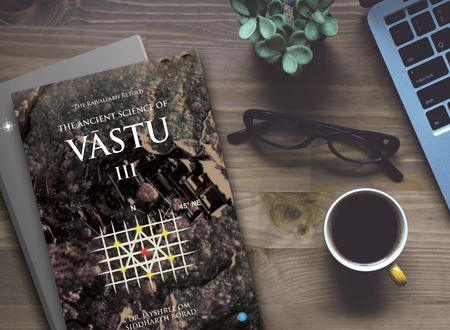In 2014, I was walking by a used bookstore in my neighborhood. I have always loved to browse books in bookstores and libraries. One red book stood out this time, a book titled Success Principles by Jack Canfield, subtitled How to Get From Where You Are to Where You Want to Be. I recognized Canfield as one of the authors of the acclaimed Chicken Soup for the Soul series. I decided to purchase the book on a whim, but without any real expectations from the book.
I had been an avid fiction reader from my teenage days. I had read every Agatha Christie murder mystery, and every John Grisham book. I was also a huge Harry Potter fan. I hadn’t really developed a flavor for non-fiction books, though. I read a few non-fiction books every now and then; I bought the Steve Jobs biography by Walter Isaacson when it came out in 2011, I read Don’t Sweat the Small Stuff by Richard Carlson, Robin Sharma’s Greatness Guide and Greatness Guide 2, and not much else. When I started reading Success Principles, though, I was blown away by what I read. Jack Canfield shook the beliefs I held.
The very first chapter made a profound impact on me. Take 100% responsibility for your life. This wisdom is nothing new to the readers of os.me, but this was a brand new revelation for me at that time. His mentor W. Clement Stone gave this advice to Canfield, and Canfield successfully followed this advice en route to success. I lived most of my life on the other side of the fence, depending on and blaming everyone else for my happiness. E plus R equals O, said Canfield mathematically. The events in our lives combined with our responses make up our outcomes. We don’t have control over the events, but we most certainly have control over our responses to these events.
In another chapter, the following concept shook a core belief of mine. Rejection is a Myth. Canfield said that there is no such thing as rejection. He explained it from scratch in the most beautiful manner I had encountered. You want something. You follow it up by asking someone for what you want. If they give it to you, well, great. If they don’t give it, you are exactly where you started, you have not lost anything. Wow. I had spent a good chunk of time avoiding rejection, feeling bad when rejected, and here was someone telling me that all of this was not necessary.
Accepting the need to change is the first step towards self-transformation. Having lived most of my life believing that my flawed ways were impeccable, I had finally embraced the need to change. However, my conditioning was so strong that anything that I read was an intellectual exercise, and I did not find myself practicing the newly discovered principles. I read Swamiji’s articles, learned the Bhagavad Gita, had several aha moments, but change seemed hard to come by.
I then decided to embark on an experiment in Mid-2016. In my thirty odd years on this planet, I had repeatedly been conditioned (by myself and by well-meaning individuals) with a flawed way of looking at things. What if I aggressively feed myself with positive information for a year, without being concerned about short term results? What if I flood my mind with surfeit of high quality information, and let it churn in my mind subconsciously? Just as how advertisements prey on a person’s subconscious mind, what if I did the same with books? The goal I decided to take on was to Read 100 Non-Fiction books by the end of 2016. I came up with some ground rules: Audiobooks wouldn’t count. Scriptures (Bhagavad Gita, Upanishads) won’t count. If I read a book twice, I would count it just once (while marking that I read it twice, for my personal records).
What ensued was a surfeit of purchases from Amazon as well as used book stores. I would read every minute I got a chance. I would spend my lunch time at work reading. I would spend my coffee breaks reading. All this reading gave me several insights:
- A peak state is necessary for peak performance, said Tony Robbins.
- Patterns of negative thoughts cause dis-eases, said Louise Hay.
- Instead of feeling good as a result of an external situation, feeling good through conscious effort attracts an appropriately good external situation, said Rhonda Byrne.
- I learned to identify some of my erroneous zones from Wayne Dyer.
- I learned about the power of thinking positively from Napoleon Hill and Norman Vincent Peale.
- I learned that the Obstacle is the Way, that I should use the very problems in my life as a stepping stone for progress, from Ryan Holiday.
- And much more.
At the end of 2016, I had read some 90 odd books, falling short of my goal. Was I disappointed? Jack Canfield wrote in his book that he had set himself a goal of making $100,000 by the end of the year (he was making $25,000 a year at the start). He made $93,000 at the end of his year. Was he disappointed at missing his goal? No! He had gone from making $25,000 to $93,000 for Pete’s sake, he was delighted! And so was I – having read a book or two in passing, I had read 90 odd books that year! I, too, was delighted!
And what’s more, I had developed an interest in reading non-fiction books. I continued to read more books, as well as re-read some books multiple times (As an example, I’ve re-read Obstacle is the Way several times, and will read it many more times). When I participated in the Walk the Dragon course, Swamiji assigned 2-3 books per week. Thanks to the reading muscle I had built with my 100-books-a-year experiment, I had an easier time reading the books. And when I learned that Swamiji was and is an avid reader, I was pretty thrilled to know that I had unwittingly embarked upon an activity Swamiji practices.
What next? When I started reading books, my mindfulness quotient was very low. I have been building mindfulness gradually, thanks to regular black lotus meditation. I plan to read new books, re-read most of the books that made an impact, take copious notes, and take actionable steps in the pursuit of self-transformation.
And did it help me in re-conditioning myself? The answer is a resounding Yes. While there is still a long road to travel, I can see that this exercise has made me travel from a less-than-desirable point A in the past to a better point B.
Thank you, dear reader, for taking the time to read this article in its entirety. If I can give you one takeaway from personal experience, reading rich non-fiction books will pay dividends in the long run, even if it is uncomfortable or painful to start with.
Photo Credit: Photo by mentatdgt from Pexels









Comments & Discussion
36 COMMENTS
Please login to read members' comments and participate in the discussion.